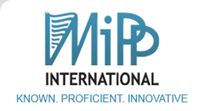Топа З., Кзэбэдай Л., Алдорфай Г. Дифференциация подходов в области региональных исследований [На англ.]
DIFFERENT APPROACHES FOR REGIONAL ANALYSESZoltan Topa
PhD Student (Regional Sciences), Institute of Regional Economics and Rural Development, Faculty of Economics and Social Sciences, Szent István University
topa.zoltan.szie@gmail.com
Páter Károly St., 1, H-2100 Gödöllő, Hungary
Lilla Czabadai
PhD Student (Regional Sciences), Institute of Regional Economics and Rural Development, Faculty of Economics and Social Sciences, Szent István University
czabadai.lilla@gmail.com
Páter Károly St., 1, H-2100 Gödöllő, Hungary
Gyorgy Aldorfai
PhD Student (Regional Sciences), Institute of Regional Economics and Rural Development, Faculty of Economics and Social Sciences, Szent István University
aldorfai@gmail.com
Páter Károly St., 1, H-2100 Gödöllő, Hungary
Abstract.
It can be observed that many academic papers dealing with regional analysis show some basic and key similarities with each other. This does not mean that they would be too identical or repetitive; on the contrary, their most important similarities are their differences to each other. For instance, there can be various types of theoretical and methodological approaches, different types of datasets compared and analysed, and unique regional characteristics. Analysing investigation methods is an important research field, because it is a difficult task to find appropriate methodologies which can be supported by theoretical concepts. This paper attempts to demonstrate two examples for measuring problematics: one about transport infrastructure and accessibility, the other is about defining beneficiary regions in Hungary. The reason these two topics were chosen is that the measurability of the impact of transport infrastructure and regional development levels are still debated even these days; therefore, there is a need for more and more new attempts to analyse the two subjects. During the presentation of these examples some segments of the theoretical background will be demonstrated along with practical examples and questions. Finally, the paper summarises the importance of proper regional analytic methods.
Key words: regional processes, methodological differences, cohesion, analyses, accessibility, proximity, infrastructure, border definition, statistics, indicators, measurable, monitoring.
Attachments: /Topa_i_dr.pmd.pdf







